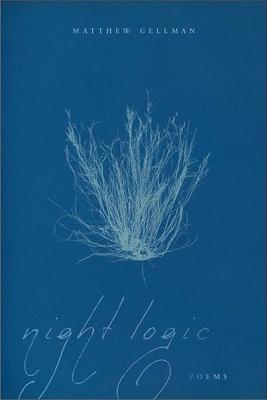The poems in Night Logic deal with queer coming-of-age and desire, as well as the persistent impact that childhood trauma can have on queer relationship-building. Focusing on the speaker's longing to be seen, as well as his frequent desire to hide, Night Logic charts the speaker's journey out of the closet and into an adult world that is both daunting and liberating at once. These confessional poems use the natural imagery of the speaker's childhood to evoke longing and loss, as the landscape around him functions as both mirror and conduit. Again and again, the poems analyze the role that the closet has played in his struggles with self-articulation, as well as his parents' divorce and the ways in which that rupture disorients him in his search for connection (romantic or otherwise). Night Logic explores the psychology of suppression in lucid, cinematic detail, presenting an elegant portrait of the pain that often comes with individuation.

The poems in Night Logic deal with queer coming-of-age and desire, as well as the persistent impact that childhood trauma can have on queer relationship-building. Focusing on the speaker's longing to be seen, as well as his frequent desire to hide, Night Logic charts the speaker's journey out of the closet and into an adult world that is both daunting and liberating at once. These confessional poems use the natural imagery of the speaker's childhood to evoke longing and loss, as the landscape around him functions as both mirror and conduit. Again and again, the poems analyze the role that the closet has played in his struggles with self-articulation, as well as his parents' divorce and the ways in which that rupture disorients him in his search for connection (romantic or otherwise). Night Logic explores the psychology of suppression in lucid, cinematic detail, presenting an elegant portrait of the pain that often comes with individuation.